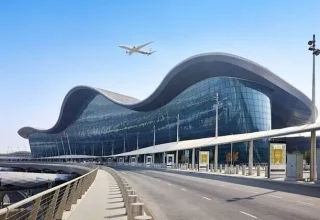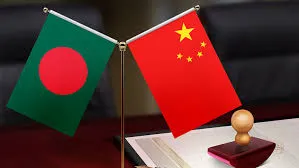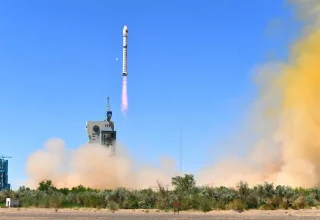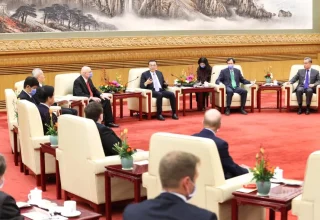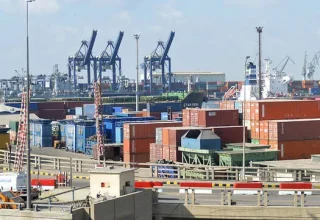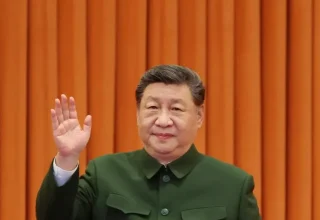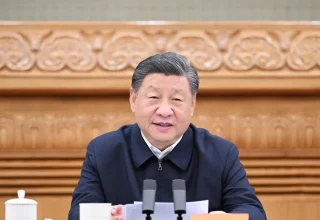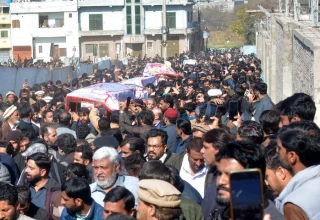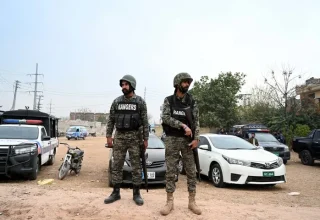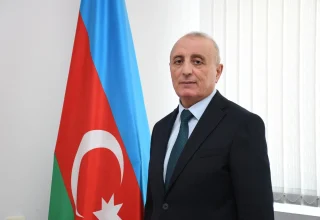
Professor Humbat MUSAYEV
In May 2025, during the official visit of Pakistani Prime Minister Muhammad Shehbaz Sharif to Azerbaijan on the eve of the country’s Independence Day, a series of high-level meetings were held in Lachin – a territory liberated from occupation. Among these, the Lachin Summit, attended by the leaders of Azerbaijan, Pakistan, and Türkiye, was especially memorable. Prime Minister Sharif reaffirmed Pakistan’s unwavering support for Azerbaijan’s sovereignty over Karabakh by declaring, “Karabakh is Azerbaijan!” During this visit, official documents were signed covering a broad spectrum of bilateral cooperation, marking the beginning of a new strategic phase in Azerbaijan–Pakistan relations.
Historical Context
The modern chapter of close and friendly ties between Azerbaijan and Pakistan began with Azerbaijan’s restoration of independence. Pakistan was one of the first countries to recognize Azerbaijan’s independence, doing so on December 12, 1991. Diplomatic relations between the two nations were formally established on June 9, 1992. Pakistan has consistently demonstrated firm political support for Azerbaijan’s territorial integrity. Due to Armenia’s occupation of the former Nagorno-Karabakh region and seven surrounding districts, Pakistan has refused to recognize Armenia as an independent state. Azerbaijan and Pakistan, which share common religious and cultural values, also support each other on international platforms such as the Organization of Islamic Cooperation (OIC) and the Non-Aligned Movement. For example, in 2022, the President of Pakistan unequivocally supported Azerbaijan’s admission to the D-8 summit held in Islamabad. Built upon this strong foundation, bilateral relations have in recent years evolved toward a deeper strategic partnership.
Political and Moral Solidarity
Political and moral solidarity between Azerbaijan and Pakistan carries particular significance. For over three decades, Pakistan has openly supported Azerbaijan’s position in the Karabakh conflict and has condemned Armenia’s occupation policies. Pakistani officials have repeatedly declared their endorsement of the principle “Karabakh is Azerbaijan.” During the 44-day Patriotic War in 2020, Pakistan and Türkiye stood by Azerbaijan from the very first days, expressing political and moral solidarity in its fight to restore sovereignty. At the Lachin Summit, President Ilham Aliyev expressed his gratitude to both Pakistan and Türkiye for their unwavering support and solidarity.
On the other hand, Azerbaijan has always stood with Pakistan as well. Notably, Baku supports Islamabad’s just position on the Jammu and Kashmir issue. In May of this year, amid heightened tensions between India and Pakistan, Azerbaijan expressed solidarity with the Pakistani government and people through an official letter condemning India’s military escalation. The letter called for the peaceful resolution of the conflict in accordance with international law and the UN Security Council’s resolutions. Prime Minister Shehbaz Sharif thanked Azerbaijan for this support during the period of heightened tension, referring to the celebration of Pakistan’s victory as a symbol of the closeness between the two nations. Thus, political and moral solidarity between Azerbaijan and Pakistan is mutual and forms the cornerstone of their strategic partnership.
Economic Cooperation
In recent years, the development of economic ties has emerged as a priority direction in Azerbaijan–Pakistan relations. During Prime Minister Shehbaz Sharif’s visit to Azerbaijan in February 2025, numerous documents were signed to expand cooperation between the two countries in areas such as trade, energy, transportation, tourism, and education. Notably, significant agreements were reached in the energy sector:
- A Memorandum of Understanding on the Machike-Talian-Tarujabba white oil pipeline project was signed between SOCAR (State Oil Company of the Republic of Azerbaijan), Pakistan’s Frontier Works Organization (FWO), and Pakistan State Oil (PSO).
- An Additional Agreement to the Framework Agreement on the sale of liquefied natural gas (LNG) was signed between SOCAR and Pakistan LNG Limited, detailing the terms of LNG supply.
- Long-term agreements between SOCAR Trading SA and Pakistan State Oil (PSO) were concluded for the supply of petroleum products, among other documents.
These agreements not only solidify the legal foundation of economic partnership but also usher in a new phase of practical cooperation. In particular, energy and infrastructure projects are expected to contribute to the diversification of Pakistan’s oil and gas supply. The agreements signed between SOCAR and Pakistani companies aim to strengthen Pakistan’s energy security. At the same time, the establishment of a sister city partnership between Nakhchivan and Lahore is set to promote cultural and economic exchange at the local level.
Pakistan and Azerbaijan also intend to deepen their cooperation in investment and trade. During the Lachin meetings, the Azerbaijani side reaffirmed its plans to invest $2 billion in the Pakistani economy. President Ilham Aliyev noted that just as Azerbaijan has invested $20 billion in the Turkish economy, it is now ready to allocate $2 billion to Pakistan’s economy. These investments will cover various sectors, including energy, education, healthcare, and the defense industry. The two sides have already agreed to organize reciprocal visits of high-level delegations to explore investment opportunities and launch relevant negotiations. Furthermore, Pakistan has offered Azerbaijan and Central Asian countries access to its Gwadar and Karachi ports, aiming to strengthen its role in regional trade and transportation connectivity. In this way, the agreements reached in the economic domain and the planned investment initiatives are elevating Pakistan–Azerbaijan relations to the level of a strategic partnership.
Military Cooperation
Military and defense cooperation between Azerbaijan and Pakistan has significantly expanded in recent years. Collaboration is progressing in both training and defense industry domains between the Pakistan Army and the Armed Forces of Azerbaijan. The joint military exercise “Three Brothers – 2021”, held in Baku with the participation of the special forces of Azerbaijan, Türkiye, and Pakistan, served to further strengthen the ties between the three armies. Particular attention should be given to cooperation in the defense industry. In 2022 (with final documentation completed in 2024), an agreement was signed between Pakistan and Azerbaijan on the sale of JF-17 Thunder multirole fighter jets. This agreement envisions the supply of Pakistan-manufactured JF-17 Block III fighter aircraft to the Azerbaijani Air Force.
Military-technical cooperation between the two countries is not limited to aviation. During his speech at the Lachin Summit, President Ilham Aliyev emphasized the prospects for deeper collaboration with Pakistan’s defense industry, noting that joint military exercises and defense industry projects would further strengthen the capabilities of both armies. Indeed, Azerbaijan has expressed interest in Pakistan’s defense sector, and future cooperation may include joint production and technology transfer. Joint commissions have been established between the defense ministries of both countries, and regular consultations are held. At the May 2025 meetings, security and defense issues were once again among the main topics of discussion. This cooperation not only serves bilateral interests but also contributes to regional stability in a trilateral format that includes Türkiye.
Strategic Significance of the Lachin Summit
The Lachin Summit marked a historic meeting that brought together the leaders of Azerbaijan, Türkiye, and Pakistan for the first time on the liberated territories of Azerbaijan. Held on May 28, 2025 – Azerbaijan’s Independence Day – this trilateral gathering in Lachin carried profound symbolic meaning. Firstly, the choice of Lachin as the venue underscored the revival of life in the Karabakh region and the full restoration of Azerbaijan’s sovereignty. President Ilham Aliyev stated that holding such a high-level event in liberated Lachin “bears great symbolic significance” and serves as a testament to Azerbaijan’s revival on its own land. On the same day, the inauguration of Lachin International Airport took place, marking an important step in the region’s integration into the global transportation network. Secondly, the timing of the summit – coinciding with Independence Day – symbolized the path from “brotherhood to strategic partnership” among Azerbaijan, Türkiye, and Pakistan. In a joint declaration following the summit, leaders Ilham Aliyev, Shehbaz Sharif, and Recep Tayyip Erdoğan pledged to work together for economic development and regional prosperity and to elevate the existing fraternal ties to the level of a strategic partnership. The summit was thus seen as the foundation of a new geopolitical alliance among the three nations. Key topics discussed during the summit included security, energy cooperation, regional transport projects, and joint humanitarian initiatives. For instance, Türkiye highlighted its role in expanding regional transit and transport connections, stressing the importance of routes that would link the three countries. In the energy sphere, discussions centered on joint projects, including the potential delivery of Azerbaijani gas and petroleum products to Pakistan and Türkiye.
The summit also demonstrated the unity of the three countries on major international and regional issues. The leaders called for the peaceful resolution of all regional conflicts and reaffirmed their commitment to the principles of sovereignty and territorial integrity. Türkiye’s historic success in combating PKK terrorism was specially noted, with its importance emphasized not only for Türkiye but for the entire region. At the same time, expressions of hope were made regarding the ceasefire agreement between Pakistan and India, along with calls for lasting peace in South Asia. Azerbaijan and Türkiye reaffirmed their solidarity with Pakistan on its regional challenges, including the Kashmir issue. During the summit, Prime Minister Shehbaz Sharif emphasized the importance of resolving the Kashmir conflict through dialogue and in accordance with international law, expressing his gratitude to Azerbaijan and Türkiye for their continued solidarity.
All these aspects highlight the strategic significance of the Lachin Summit. On one hand, the meeting elevated Azerbaijan-Pakistan relations to a trilateral level by incorporating the Türkiye factor; on the other hand, it introduced a new dynamic into the regional balance of power and the architecture of cooperation. The summit affirmed the political will for the continuity of the Azerbaijan-Pakistan-Türkiye format: the leaders agreed to hold such trilateral summits on a regular basis and to implement joint initiatives. This means that the Lachin Summit will go down in history not merely as a symbolic event, but as the launch of a lasting platform with tangible results.
Future Prospects
The future outlook for Azerbaijan–Pakistan relations appears highly promising against the backdrop of their shared strategic interests. The agreements reached during the meetings held in Lachin in May suggest that bilateral ties will deepen further in the coming years. In particular, the memorandums and agreements signed in the economic sphere are already taking shape as concrete projects. For example, the planned oil pipeline project will help diversify Pakistan’s energy import routes, while the LNG supply agreement reached with SOCAR will contribute to Pakistan’s energy security. Under Azerbaijan’s investment program, significant progress is expected in various sectors of Pakistan’s economy – including energy, agriculture, information technology, healthcare, and others.
Looking ahead, there is also potential for collaboration between the two countries in the fields of unmanned aerial vehicles, armored equipment, and other military technologies. As President Ilham Aliyev has already emphasized, plans are underway to conduct joint military exercises and implement defense industry projects. In this context, there is a strong likelihood of organizing the next “Three Brothers” joint military exercise involving Azerbaijan, Pakistan, and Türkiye, along with the establishment of trilateral cooperation in the defense sector. Such a trilateral security partnership would contribute to the preservation of peace and stability across the region.
Azerbaijan and Pakistan are expected to continue acting from a shared position on the international stage. The two countries consistently support each other within international organizations such as the United Nations (UN), the Organization of Islamic Cooperation (OIC), and the Non-Aligned Movement (NAM), jointly defending the interests of the Muslim world and developing nations. In particular, both brotherly countries raise and advocate for each other’s rightful positions on issues such as the Kashmir conflict and the post-Karabakh regional order in international forums. This political solidarity will remain an important element in coordinating their foreign policies in the future.
It is expected that steps will be taken toward institutionalizing the Lachin Summit. Based on the agreement reached by the leaders, Azerbaijan, Pakistan, and Türkiye plan to hold regular trilateral summits. In the future, cooperation within this format may go beyond political declarations and lead to concrete trilateral projects – for example, the establishment of transportation corridors, coordination of energy exports, and joint humanitarian programs in response to natural disasters. Such a collaborative platform would strengthen the regional and global standing of all three countries and outline the contours of a new strategic alliance between the South Caucasus and South Asia.
The visit of Prime Minister Shehbaz Sharif to Lachin in May 2025, along with the trilateral summit held there, opened a new chapter in Azerbaijan-Pakistan relations. The official documents signed during this historic visit laid a multifaceted foundation for cooperation, and decisions of strategic importance were adopted. The relationship between Azerbaijan and Pakistan is now not only significant in a bilateral context but is also emerging – in partnership with Türkiye – as a key factor in the regional dimension. The demonstrated political will and the deep-rooted bonds of brotherhood show that the relationship between the two nations is evolving from a historic friendship into a robust strategic partnership. This partnership promises mutual benefit, security, and prosperity – for Azerbaijan, for Pakistan, and for the region as a whole.
The writer of this article is the Editor in Chief of “Respublika” Newspaper
Azerbaijan






